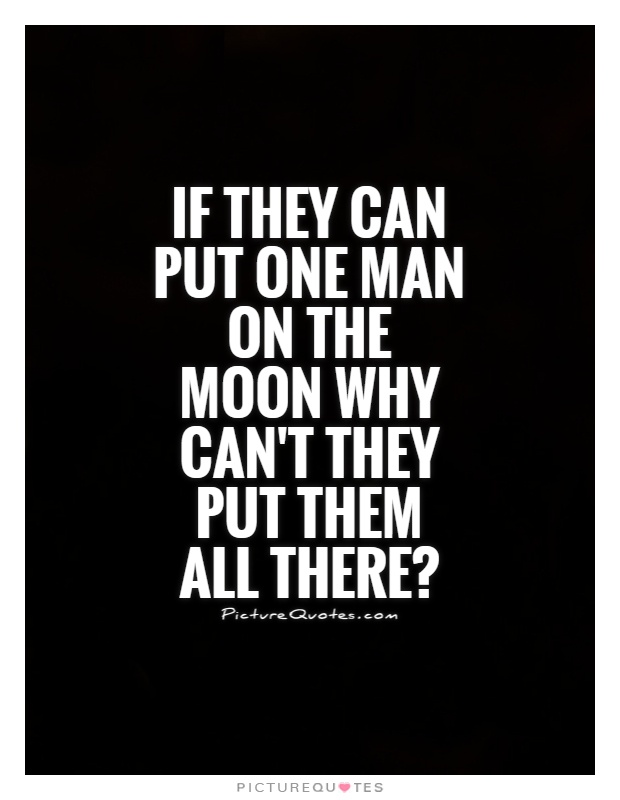If they can put one man on the moon why can't they put them all there?

If they can put one man on the moon why can't they put them all there?
The phrase "If they can put one man on the moon why can't they put them all there?" is often used to highlight the disparities and inequalities that exist in the world. It questions why certain individuals or groups have access to resources and opportunities that others do not. In the context of "chocolate waters," this phrase takes on a new meaning that speaks to the issue of environmental degradation and pollution."Chocolate waters" refers to bodies of water that have been contaminated with pollutants, such as industrial waste or sewage, causing them to take on a brown or murky appearance. This type of pollution can have devastating effects on aquatic ecosystems and the communities that rely on these water sources for drinking water, fishing, and recreation.
When we consider the phrase "If they can put one man on the moon why can't they put them all there?" in the context of "chocolate waters," it raises important questions about environmental justice and the unequal distribution of resources. Why is it that some communities have access to clean and safe water, while others are forced to contend with polluted and toxic water sources?
The reality is that environmental pollution disproportionately affects marginalized and vulnerable communities, who often lack the political power and resources to address these issues. In many cases, these communities are located near industrial sites or waste disposal facilities that contribute to water pollution. This raises questions about who is responsible for addressing these environmental injustices and ensuring that all people have access to clean and safe water.
The phrase also highlights the need for collective action and solidarity in addressing environmental challenges. Just as putting one man on the moon required the collaboration of scientists, engineers, and policymakers, addressing water pollution and environmental degradation requires a collective effort from individuals, communities, and governments. By working together to advocate for clean water and sustainable environmental practices, we can ensure that everyone has access to safe and healthy water sources.












 Friendship Quotes
Friendship Quotes Love Quotes
Love Quotes Life Quotes
Life Quotes Funny Quotes
Funny Quotes Motivational Quotes
Motivational Quotes Inspirational Quotes
Inspirational Quotes